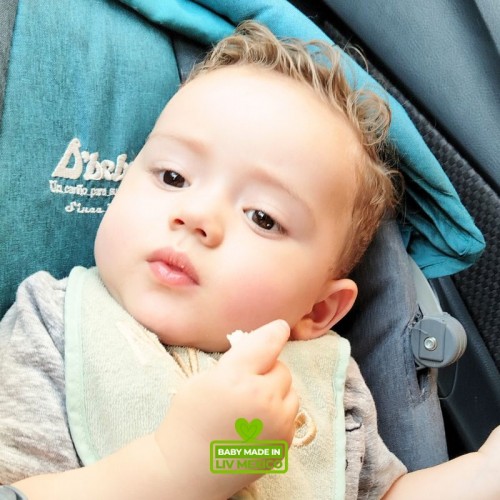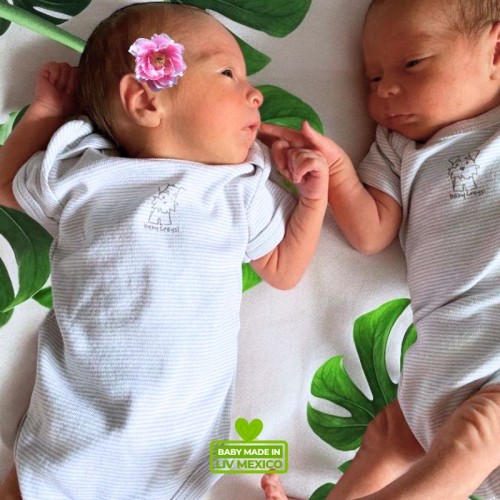Infertility FAQs
Infertility is defined as one year of actively trying to conceive without success. Generally an evaluation is encouraged in this scenario. Sometimes an evaluation is recommended much earlier, typically after six months of attempted conception, if the couple has an obvious potential fertility problem such as a history of tubal disease, menstrual irregularity, prior abnormal semen analysis, or maternal age > 35 years of age.
Here are many potential problems that can lead to infertility. The most common is advancing maternal age. Oocyte number and quality decline as a woman reaches her mid to late thirties, and declines far more rapidly by her early forties. Other female causes of infertility include tubal disease from prior infection or surgery, endometriosis, uterine abnormalities including fibroids, polyps, adhesions, or infection, and ovulatory problems. Male factors also can contribute significantly as well in up to 40-50% of cases. These abnormalities most often are noted in the semen analysis and include issues with sperm concentration, motility, and morphology.
When you begin your journey to parenthood at LIV, you will consult with a personal advisor — a committed member of our team — who will acquire an extensive medical history from you and your partner and address any questions or concerns that you may have. When you are ready to take the next step, your LIV advisor will help you plan your first visit to Puerto Vallarta. We understand that the IVF procedure can seem frightening, so here at LIV we have developed a program that allows you to feel comfortable and confident during each step of your journey.
This is a very broad question which often requires a very complicated and in-depth discussion, especially when individualizing treatment for a patient or couple. However, in general, the treatment options include observation, lifestyle management including nutritional adjustment and exercise, intra-uterine insemination, surgery (such as hysteroscopy or laparoscopy), ovulation stimulation with oral or injectable medications, in vitro fertilization (IVF), intra-cytoplasmic sperm injection (ICSI), gender selection, and donor services.
In Vitro Fertilization (IVF) is a process created to overcome many abnormalities that can prevent pregnancy, including tubal disease, advancing maternal age and sperm abnormalities. In general, multiple oocytes (eggs) are stimulated to grow with injectable gonadotropins, and then obtained from the patient via trans-vaginal needle aspiration while the patient is under anesthesia. These eggs are then fertilized in the laboratory, either by mixing sperm with the eggs to allow “natural” fertilization, or by ICSI. The fertilized egg becomes an embryo. Embryos are generally grown for 3-5 days before the best-quality embryo(s), generally one or two, are replaced into the uterine cavity via a process called embryo transfer. If additional high-quality embryos remain, they can be cryopreservered (frozen) indefinitely.
The cost of the medication entirely depends on your own personal circumstances. Once the doctor has reviewed your test results and determined the dose you require then we will be able to estimate the cost. Similarly with the medication required during and after treatment, this will depend on what is prescribed once the doctor has carried out your initial scan and treatment in Mexico. However, check our packages with medication included.
Your doctor will organize a prescription for the medication you are required to take at home in preparation for the treatment in Mexico. You can buy this medication from your local pharmacy or we work with a pharmacy in the UK that can deliver the medication to you. Medication required during your treatment in Mexico will be prescribed and delivered to your hotel. Specialized medication not sold in regular pharmacies will be purchased at the clinic
Egg Collection FAQs
Ovulation induction may last for approximately 12 days.
When monitoring infertility specialists are observing ovarian response to the stimulation medication. We are monitoring the follicle development and the correct size for the retrieval.
The number of eggs collected depends on each individual patient’s fertility levels and ovarian reserve. The Ultrasound scan which our DR. will carry out on your first appointment will allow him to see how well your follicles have developed and be able to give you an indication then of how many eggs you are likely to produce. For example, our donors being young and fertile will produce 10-20 eggs. In addition, the number of embryos created depends on how many eggs produced and the quality of the sperm used.
Yes, you will be lightly sedated for the procedure and not feel any pain. You may have some spotting and cramping afterwards though and this is perfectly normal.
A mild pain killer can be taken if required. The doctor will give you instructions for your after-care medications.
Embryo Transfer FAQs
Embryos are typically transferred 3 days after fertilization and may then be at the eight-cell stage, or they are transferred 5 days after fertilization when they have reached the blastocyst stage. This depends on the embryo quality.
A blastocyst embryo develops 5 days after fertilization. Not all embryos will develop to produce blastocysts. Our embryologist may advise it is safer to consider a day three embryo transfer than risk having no blastocyst to transfer on day five. Blastocyst transfer is typically an option for women who produce 10+ eggs.
Before an embryo can attach to the wall of the womb, it has to break free or ‘hatch’ from its outer layer which is called the zona pellucida. Assisted hatching is when a hole is made or the outer layer is thinned helping the embryos to ‘hatch’ to increase the chances of pregnancy. We do carry out Assisted Hatching at LIV if it is required typically so in women 35+ years or when the embryos have a thick zona pellucida. Assisted hatching is also used when a patient has a history of failed IVF cycles.
As embryos divide, sometimes a small portion of cytoplasm (the inside of the cell) breaks off and forms what we call a fragment. Fragments do not contain nuclei and are not considered cells. The causes of fragmentation are poorly understood, but embryos containing a lot of fragmentation are developmentally disadvantaged simply because the cells lose too much cytoplasm and thus, cellular machinery, to the fragments.
If you have a number of good quality embryos left that are not transferred, then there is the option to freeze them. These can be used in a cycle at a later date in case the first cycle is unsuccessful, or if you decide you wish to have more children in the future. Dr. Amaro will advise regarding the quality and quantity remaining and let you know if it would be beneficial for you. The warranty we offer means that remaining frozen embryo transfers are done for free, in case we are not successful the first time
Some patients on a tight time scale do travel home the evening after their transfer however we advise to wait until at least the following day before flying home. Flying or any other mode of transportation has not been shown to have any adverse effects on embryo transfer.
As with any medication taken there can be some side effects however it is quite rare that patients notify us of any. The side effects will be noted on the medication information leaflet. If you do experience any side effects, please let us know. Every patient responds to the ovarian stimulation differently therefore a risk relating to the IVF procedure may be that it has to be cancelled due to poor ovarian response or ovarian hyper-stimulation. Also if the male partner does not produce any quality sperm in his sample or through a testicular biopsy procedure then the treatment may also need to be cancelled. In any case Dr. Amaro will advise the best way forward for you such as egg or sperm donation. The initial tests we ask you to do before commencing IVF treatment (Antral Follicle Scan, Hormone tests and sperm analysis) will give our doctors a good idea from the start of your chances of IVF treatment using your own eggs and sperm. He will therefore be able to advise at that time if he feels a different route would be best to achieve pregnancy, thus saving the disappointment of any cancellations.
The transfer process is very smooth and most patients do not experience any bleeding or spotting after their transfer however if you do it is nothing to worry about. A reason for some spotting could be because you have a narrow cervical opening. The blood is not coming from your uterus and your embryos are not affected in any way. The tiny drop of blood is not your embryo so you should keep calm and carry on with your everyday activity. In the extremely unlikely event that you experience heavy bleeding after the transfer then you should let us know immediately.
During embryo transfer, the doctor will clean your vaginal canal and the cervix with a sterile fluid. After the embryo transfer you might experience a wet feeling, which is just this fluid leaking out. There is no need to panic thinking it is your embryos, the fluid is not from your uterus while your embryos have been transferred and remain safe inside.
Embryo grading is carried out by our expert embryologist along with information that provides the patients age, fertility history and other details to determine: • the optimal day of transfer • the appropriate number and exactly which embryos to transfer. It is performed according to the number and appearance of the cells. On day 3 of development, a grade one embryo is one in which all of the cells are the same size and there is no fragmentation in the embryo.
Embryo Transfer FAQs
Low sperm count generally is not a problem because we use the ICSI procedure. The quality of the sperm is the most important thing. If you suspect that there could be underlying sperm problems then you should have it tested before commencing treatment.
Yes, you can use your own egg donor however the donor will need to have all the normal fertility blood tests and scans to see if he has enough eggs for the treatment. You will also need to synchronize your periods. The results will need to be sent to Dr. Amaro to advise where it is possible or not.
Better known as “the pregnancy hormone”, hCG is human chorionic gonadotropin. The body begins to produce hCG when an embryo begins to implant in the uterus. The beta hCG blood test should be carried out on day 12 after your embryo transfer. The beta hCG test will give you a quantitative report i.e. it will report the level of hCG hormone that is present which can give a good indication of how many embryos have implanted. If the first beta hCG test is positive you should repeat the test in 2 to 3 days. The goal is to have the level of hCG double every 3 days. If it does another beta test should be carried out in another 2-3 days time. If all three betas indicate a healthy pregnancy, then a vaginal ultrasound will be scheduled between the 6 to 8 week mark of the pregnancy. At that time, your doctor will be looking for a heartbeat and a gestational sac to confirm the pregnancy.
There are no guarantees when it comes to twins as implantation is determined by nature and occurs 2-3 days after embryo transfer. In order to increase your chances of having twins we can transfer 3 or 4 of the best qualıty embryos in the hope that more than one of them will implant.
PGD is an abbreviation for pre-implantation genetic diagnosis. It involves removing a single cell from an embryo, usually on the third day after fertilization, to determine if the cell or embryo is genetically normal or if the chromosomes are balanced. It can also be used to test for specific genetic mutations if planned in advance. There are numerous pros and cons to this procedure and an in-depth discussion with our fertility doctors to see if PGD is appropriate for you.
The recommendation to have intercourse during a cycle depends on the type of treatment. If the cycle is an insemination cycle, the answer is generally yes. If it is an IVF cycle, the answer is generally no starting 4 days before oocyte retrieval. With IVF, we recommend holding off on intercourse until your next period (if not pregnant), or until at least 6 weeks gestation if pregnant.






